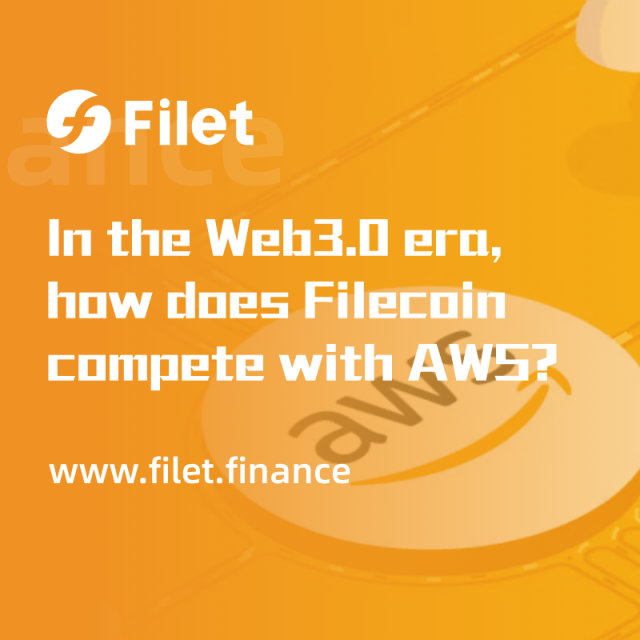As there are more Web3 applications, the requirements for data computing performance are getting higher, and decentralized cloud computing is also developing rapidly. Both Filecoin and Amazon Web Services (AWS) offer solutions for data storage and management. So, which will win in the Web 3.0 era?
What is AWS and Cloud Computing?
Amazon Web Services (AWS) is a cloud computing platform offered by Amazon.com that provides a wide range of services, including storage, data processing, and analytics. AWS allows users to store and access data on a centralized server, and offers a range of options for data storage, including object storage, file storage, and database storage. AWS charges users for the services they use, based on usage rates and storage capacity.
Cloud computing is a broad concept that includes all IT infrastructure resources that can be accessed on-demand. End-user spending on public cloud services worldwide reached $396 billion in 2021. Among them, Amazon AWS often tops the list with a market share of about 30%, and other major cloud service providers are also providing centralized services.
With the continuous development of Web3.0, decentralized cloud computing began to play a role, and gradually revealed its ability to compete with centralized cloud services.
What is Filecoin?
Filecoin is the leading project in decentralized cloud storage. It is an incentive protocol based on the underlying storage network of IPFS (InterPlanetary File System). It is a blockchain-based system that allows users to buy and sell storage on the network, providing a market-based solution for decentralized storage.
IPFS adopts the Merkle DAG data structure, which is a transformation based on Merkle Tree. With this data structure, IPFS achieved content addressing and fragment downloading of files. IPFS assigns each file a unique hash, like a file fingerprint. Each root file is connected to multiple node files. Once the content of the node file changes, the hash value will change accordingly, so that the hash of the root file will change too.
When querying files, the IPFS network searches based on the unique file hash value of the entire network, which is also called “content addressing”. While traditional HTTP queries files through the URL address. Once the file in the address is changed, the visitor cannot find the original file. Moreover, content addressing also ensures that data will not be stored repeatedly in IPFS, which saves storage space.
When downloading a file, you only need to know the hash address and do not need to download the entire file. But in BitTorrent, you must use a torrent file to download and put all the addresses of the downloaded content in the torrent file, which is not convenient to download fragmented files.
As an incentive layer, Filecoin introduces blockchain, which further improves the mechanism of IPFS decentralized storage. Filecoin’s consensus is divided into storage and retrieval, and users need to make transactions with miners respectively. After a storage order is established, miners will store data in sectors (Filecoin’s basic storage unit, like a container for storing data), and prove their storage to the Filecoin network. In the retrieval market, users request a specific query, the retrieval miners broadcast the query, and retrieval miners with this content will return retrieval proposals containing price information to trade with users.
Filecoin vs. AWS
This mechanism of Filecoin is completely different from AWS in traditional storage and has unmatchable advantages in storage permanence, security, and privacy protection. Filecoin offers a decentralized, market-based solution for storage, while AWS provides a centralized, cloud-based platform for storing and accessing data. The design of Filecoin does realize the distributed storage verification, but the system is still complex, and it is necessary to continuously challenge storage miners to verify continuous storage. For now, Filecoin is still in its initial stage, and it needs continuous optimization and promotion to compete with centralized storage.
